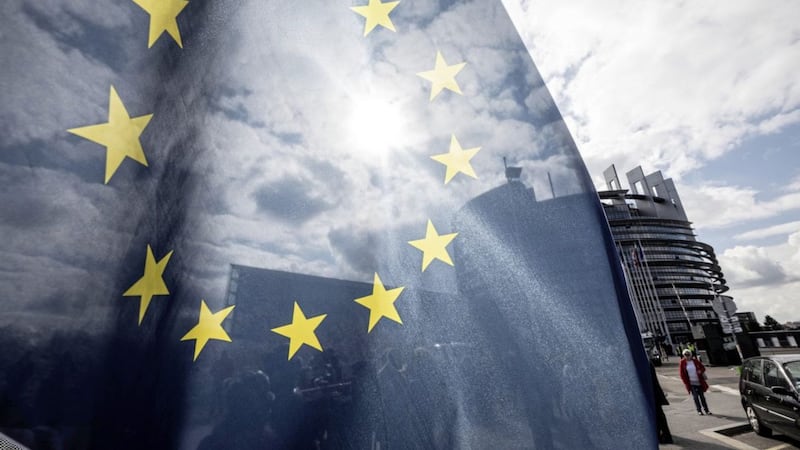IRELAND'S European elections, tomorrow and Friday, take place at a time of great uncertainty for the people of Europe, particularly for the people of Ireland facing the consequences of Brexit and for others the growth of right-wing parties, exploiting unpopular aspects of the EU and using these to promote racist fears.
Brexit has upended the British political system in a manner no-one predicted and will continue to do so long after the election on Thursday.
It has also redesigned Irish politics in a way that no-one saw and has created opportunities for new and progressive politics in Ireland with partition and reunification at the centre of a national political debate.
A debate involving all shades of Irish nationalism, including the Irish government, and sections of unionist opinion unsettled by Brexit and uncertain about their future in an Ireland, where a potential nationalist majority in the north is now part of the political equation.
Tomorrow's EU election in the north provides an unprecedented opportunity for the people to vote for a new Ireland, for a progressive society, for a rights-based society, which looks forward, aware of our difficult past but also aware that it must be resolved to the satisfaction of the relatives who lost loved ones in the conflict.
It is a rare opportunity to unite people from across the spectrum of unionist and nationalist opinion who are for: remaining in the EU, an Irish language act, truth and justice for relatives who lost loved ones in the conflict, marriage equality, reform of women's health care services, a unity referendum, climate action and who are relaxed about having a debate about a new and independent Ireland.
The distinctive difference about tomorrow's election in the north and previous elections is the existence of a new consensus of progressive people, who are uniting in defence of membership of the EU and for a progressive and liberal society which exists in the south of this country and in Britain.
This consensus began to emerge for the first time and was evident in the Remain vote in 2016, when the people of the north, including unionists, voted to stay in the EU.
It carried forward into the assembly election the following year when unionist parties lost their majority and were replaced with a progressive majority of Sinn Féin, SDLP, Alliance, Greens and People Before Profit, PBP.
This group, without the PBP, have been very effective as a pro-Remain lobby, in meetings with the Irish government and the EU, as a positive alternative to the destructive alliance of the Tory government and the DUP.
Further evidence of mood change can be seen in the formation of civic nationalist groups, like 'Ireland's Future' and the civic unionist group who are keen to demonstrate that unionists support progressive and liberal change.
Tomorrow the north's electorate can inject fresh energy into the momentum for island-wide change by voting to return two Remain MEPs.
The local government election result indicates that two of the three seats will go to Diane Dodds and Martina Anderson with the third being a close contest between Danny Kennedy, Colum Eastwood and Naomi Long.
The best chance for the third seat to go to a Remainer will depend on the size of the first preference vote for Martina Anderson and the transfer of her surplus to Eastwood or Long and the transfers to both thereafter.
It would be a powerful positive message to the Irish and British governments and the EU if Martina Anderson was to top the poll.
But there is no room for complacency. People need to come out and vote.
In a canvass in west Belfast on Sunday night it was very clear to me that people are motivated by the idea of returning two Remain MEPs and transferring their votes to help make it a reality.
South of the border there is unanimity among all the parties in opposing Brexit and staying in the EU.
The context is wholly different to the EU election of 2014 when a failing economy had popular protestors on the streets.
It will be a tough election for Sinn Féin and independents.
But there is an unstoppable momentum to a new political future across this island caused by Brexit and the EU election results are unlikely to hinder its further positive development.








